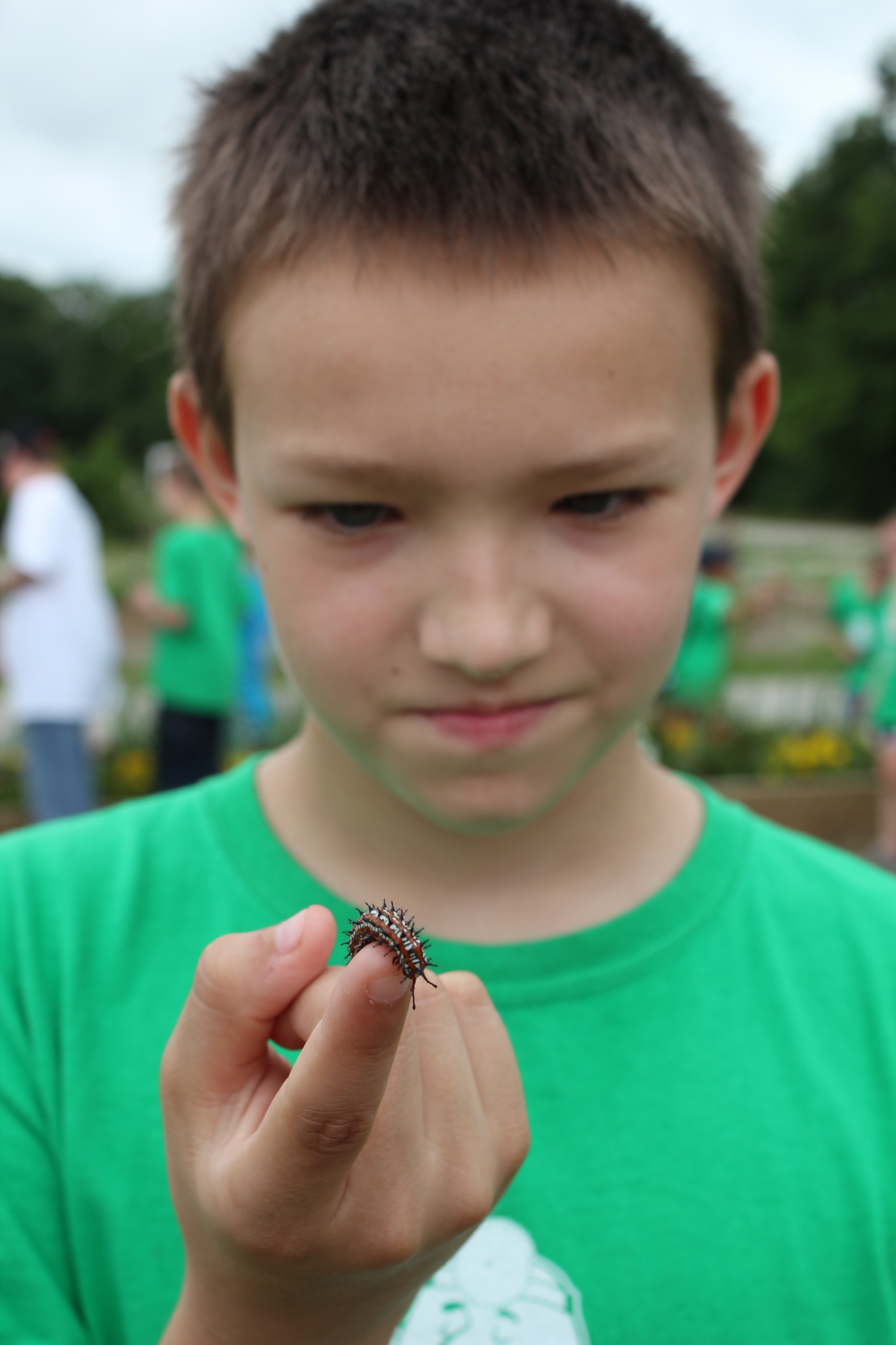
Chickasaw Nation Media
Ten-year-old Sean Higdon is well-versed in plants and compost and can even name a few beneficial insects, thanks to Chickasaw Nation Environmental Camp.
Strolling among the raised beds of onions, peppers, beans and other crops on a sunny Friday morning at the Chickasaw Nation Community Gardens, Sean and 27 other students paused to pick ripe strawberries and examine a caterpillar.
“This caterpillar is not a bad one, because he is fuzzy,” Sean explained.
Sean, of Ada, credits time spent at the unique camp for introducing him to such concepts as mulch, water conservation, gardening and natural pest control.
Designed to enlighten 8-12 year olds about the world around them, Environmental Camp offers behind-the-scenes tours of facilities, including a municipal water treatment plant, waste water treatment plant, and community gardens, where the group learned about hydroponics, compost and how the facility uses ladybugs for pest control.
Lesson about compost and how it benefits the soil made an impact on the young lives.
“This right here feels like my own garden,” said the spunky fourth grader, as he surveyed the community gardens, located southeast of Ada.
The Community Gardens is Sean’s garden– as well as all Chickasaw citizens.
The Community Garden Program is a part of the Chickasaw Nation horticulture department, and is dedicated to improving the quality of life of all Chickasaws by providing the tools and training to ensure Chickasaw people have the opportunity to attain healthy and nutritious vegetables.
Workers strive daily to fulfill the mission statement of “renewing the connection between our people and the earth.”
Crops such as corn, lettuce, onions, tomatoes and watermelon from the Community Gardens are consumed in the near-by Chickasaw Medical Center and the Cultural Center Café in Sulphur.
Thousands of tomato, squash and pepper plants are given to Chickasaw elders each spring and the general public can purchase vegetables and vegetable plants at local Farmer’s Markets during the summer months.
Shrubs and flowers grown at the gardens are available to Chickasaw homeowners and are used in landscaping at Chickasaw facilities.
Community Gardens, as well as Environmental Camp, reflects the mission of this year’s June 5 World Environmental Day observance, with objectives of teaching self-sustaining, earth- friendly concepts to young people.
The theme for this year’s World Environment Day celebrations is: Think. Eat. Save.
This campaign discourages food waste and food loss, encourages people to reduce their “foodprint” and to become more aware of the environmental impact of food choices. By purposefully choosing organic foods grown with pesticides and locally grown foods can decrease the use of dangerous chemicals and reduce greenhouse gas emissions.
World Environment Day celebration began in 1972 and has grown to become one of the main vehicles through which the United Nations stimulates worldwide awareness of the environment and encourages political attention and action.
Every year 1.3 billion tons of food is wasted, according to the U.N. Food and Agriculture Organization. This is equivalent to the same amount produced in the whole of sub-Saharan Africa.
Also, one in every seven people worldwide go to bed hungry and more than 20,000 children under the age of five die from hunger every day.
About World Environmental Day
Through World Environment Day, the United Nations Environment Program is able to personalize environmental issues and enable everyone to realize not only their responsibility, but also their power to become agents for change in support of sustainable and equitable development.
World Environment Day is also a day to remind people from all walks of life of the need to come together to ensure a cleaner, greener and brighter outlook for themselves and future generations.
